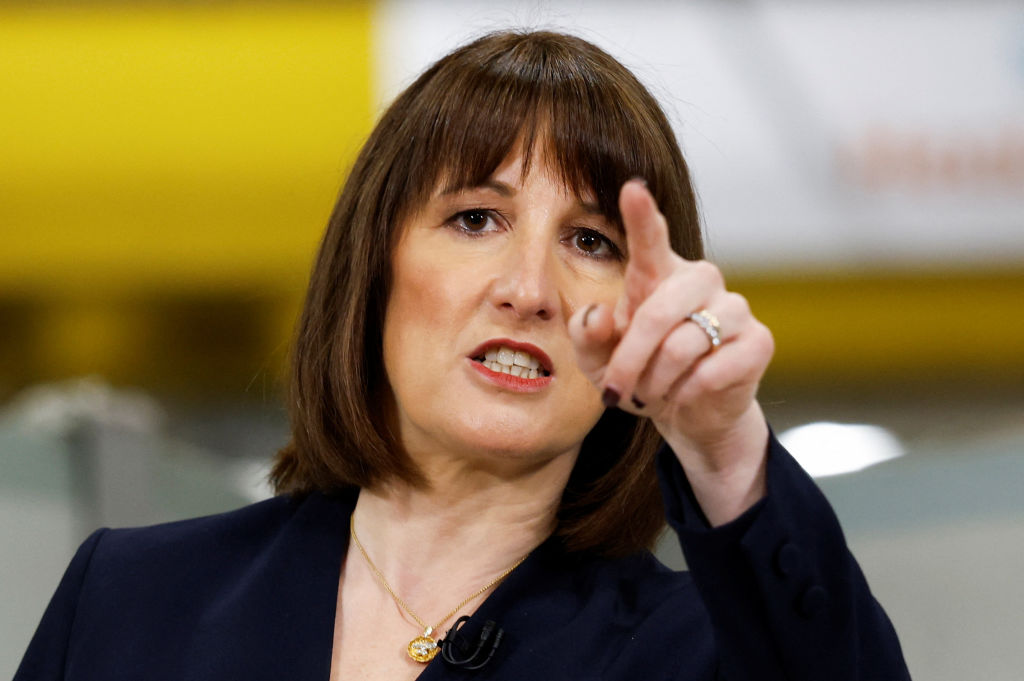Reeves’s cash ISA raid: do cash hoarders deserve a tax break?
Rachel Reeves is desperate for her plan for economic growth to work - but meddling with the tax benefits of cash ISAs is simply a step too far, says Kalpana Fitzpatrick


Get the latest financial news, insights and expert analysis from our award-winning MoneyWeek team, to help you understand what really matters when it comes to your finances.
You are now subscribed
Your newsletter sign-up was successful
Want to add more newsletters?

Twice daily
MoneyWeek
Get the latest financial news, insights and expert analysis from our award-winning MoneyWeek team, to help you understand what really matters when it comes to your finances.

Four times a week
Look After My Bills
Sign up to our free money-saving newsletter, filled with the latest news and expert advice to help you find the best tips and deals for managing your bills. Start saving today!
“A government that robs Peter to pay Paul can always depend on the support of Paul,” Irish playwright George Bernard Shaw once said in an adaptation of a quote that may have originated in Middle English.
Consider yourself, the cash ISA saver, Peter. You’re an easy target. Why should you get tax relief for simply parking your money in a cash account? The tax benefit should be used for people who deserve it, people who invest. Right? No!
There are several types of ISAs, and cash ISAs have been a great way to encourage people to save. While Reeves is desperate to show she is the right person to lead the UK onto a path of economic growth, removing the tax benefits of cash ISAs would be disastrous.
MoneyWeek
Subscribe to MoneyWeek today and get your first six magazine issues absolutely FREE

Sign up to Money Morning
Don't miss the latest investment and personal finances news, market analysis, plus money-saving tips with our free twice-daily newsletter
Don't miss the latest investment and personal finances news, market analysis, plus money-saving tips with our free twice-daily newsletter
While Reeves’s cash ISA tax raid is heavily rumoured, the Treasury did not confirm or deny the matter.
In a statement to MoneyWeek, it said: “We want to help people save for their future goals and build greater financial resilience across the country. We keep all aspects of savings policy under review."
Cash ISAs were introduced by then chancellor Gordon Brown in 1999 and 25 years on, they are used by around 18 million savers.
Data from the Bank of England showed 2024 was a record year for the cash ISA market, with savers depositing almost £49.8 billion - up from the previous record of £47.1 billion in 2023.
Savers can stash up to £20,000 into an ISA of their choice. They act as a tax wrapper and shield the returns from the tax man.
But some City of London investment firms want the chancellor to curb the tax breaks for cash ISAs. They argued that it is not for the state to provide tax breaks for those who simply place their money in cash accounts - and the £300 billion in cash ISAs could better serve the struggling equities market.
But is removing the tax incentive the right move?
ISA reviews
If Reeves wants to ‘review’ ISAs and savings policies, surely what we need is an ISA simplification.
And if she wants savers to invest, then how about taking steps to educate people about investing - and perhaps, even listen to the calls that financial education needs to be in schools.
Savers don't invest because they do not understand it and cash feels safer, so it comes as no surprise that Brits continue to hold at least £10,000 in investable assets. And some people do not invest because cash is needed for short term needs or emergency cash.
Building Societies Association: ‘We urge you to maintain this important savings incentive’
In a letter to the chancellor, the BSA said it ‘strongly disagreed’ with reported calls from city firms to restrict cash ISAs and stressed the savings incentive should stay put.
“UK savers are now familiar with the concept and the ISA name is widely recognised. Today, cash ISAs form a key part of many people’s savings, whether that is for their emergency buffer, saving towards a dream holiday, or protecting some of their wealth from changes in the stock market. The implication made by many of those calling for curbs on cash ISAs is that the savings are lying idle and not supporting economic growth. But banks, building societies, credit unions and other providers use the deposits to fund loans to households and businesses.
“Substantially reducing the role of cash ISAs would have knock-on impacts on the price and availability of these loans if providers had to replace the funds from other sources,” the letter stated.
Should you invest?
While I stress that cash ISAs play a vital role in the savings space, far too many people are sticking to the safety net of cash when they could in fact by investing in stocks and shares to make their money grow.
Data from the Financial Conduct Authority shows savers hold at least £10,000 in investable assets, missing out on the growth of their wealth.
While savers may have enjoyed the inflation-busting interest rates over the last year, the fact is, over time, inflation will have eaten into the value of your cash.
While investing does come with risk and the value of your assets can go down as well as up, over the long term (five years or more), investments almost always do better and beat inflation.
Get the latest financial news, insights and expert analysis from our award-winning MoneyWeek team, to help you understand what really matters when it comes to your finances.
Kalpana is an award-winning journalist with extensive experience in financial journalism. She is also the author of Invest Now: The Simple Guide to Boosting Your Finances (Heligo) and children's money book Get to Know Money (DK Books).
Her work includes writing for a number of media outlets, from national papers, magazines to books.
She has written for national papers and well-known women’s lifestyle and luxury titles. She was finance editor for Cosmopolitan, Good Housekeeping, Red and Prima.
She started her career at the Financial Times group, covering pensions and investments.
As a money expert, Kalpana is a regular guest on TV and radio – appearances include BBC One’s Morning Live, ITV’s Eat Well, Save Well, Sky News and more. She was also the resident money expert for the BBC Money 101 podcast .
Kalpana writes a monthly money column for Ideal Home and a weekly one for Woman magazine, alongside a monthly 'Ask Kalpana' column for Woman magazine.
Kalpana also often speaks at events. She is passionate about helping people be better with their money; her particular passion is to educate more people about getting started with investing the right way and promoting financial education.
-
 What is a care fees annuity and how much does it cost?
What is a care fees annuity and how much does it cost?How we will be cared for in our later years – and how much we are willing to pay for it – are conversations best had as early as possible. One option to cover the cost is a care fees annuity. We look at the pros and cons.
-
 How to navigate the inheritance tax paperwork maze in nine clear steps
How to navigate the inheritance tax paperwork maze in nine clear stepsFamilies who cope best with inheritance tax (IHT) paperwork are those who plan ahead, say experts. We look at all documents you need to gather, regardless of whether you have an IHT bill to pay.
